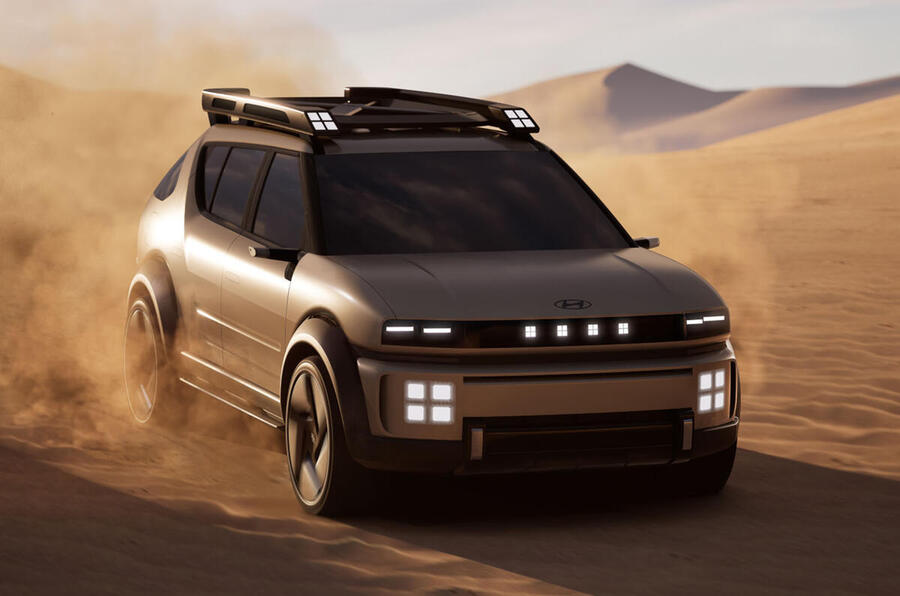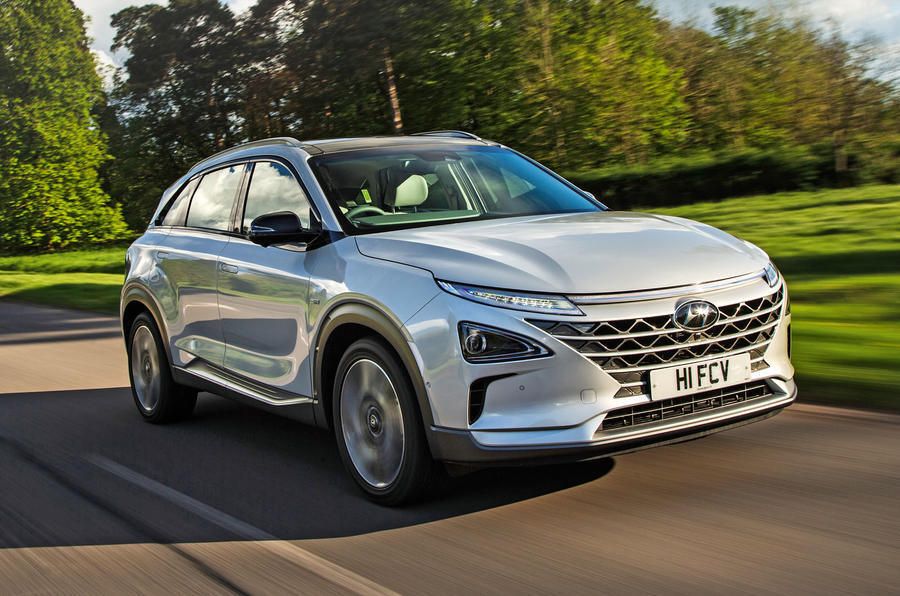Go back a decade and hydrogen cars were deemed by many to be the next big thing. However, little progress has been made in bringing them to the mainstream market.
But there is still hope for the hydrogen car. Toyota, BMW and Hyundai are still investing heavily, meaning we could still see a resurgence in the future.
But what actually is a hydrogen car and how do they stack up to petrol, diesel and electric cars?
We have all you need to know right here, including the pros and cons of hydrogen cars, plus what the future looks like for the technology.
What is a hydrogen fuel cell vehicle?
Hydrogen cars, or hydrogen fuel cell electric vehicles (often shortened to FCEV), are vehicles powered by liquid hydrogen.
This is stored in a tank at a pressure of 700 bar and then used to generate high-voltage electricity for a small buffer battery, which in turn provides transient power for acceleration.
While many people tout hydrogen as the fuel of the future, the truth is that hydrogen cars have been around for decades. In 1998, Mercedes-Benz produced the first road-legal FCEV with the A-Class-based Necar.
How do hydrogen fuel cell vehicles work?
Hydrogen cars draw their power from a fuel cell stack, where oxygen and hydrogen react to generate electricity, sending energy to an electric motor. This means they drive just like an electric car.
Likewise they produce zero harmful emissions at the tailpipe, making them a much cleaner proposition petrol or diesel cars, at least from the driver’s point of view.
How do you fill up a hydrogen car?
Hydrogen cars can be refuelled from hydrogen pumps at select filling stations. These look much like regular petrol and diesel pumps.
Refuelling a hydrogen car is a simple task: just open up the fuel filler cap and insert the pump. Typically, refuelling takes about five minutes.
The hardest part of refuelling a hydrogen car in the UK is finding a filling station. According to UK H2 Mobility, there are now just three available for public motorists in the UK.
They're based at Hatton Cross in London, Tullos in Aberdeen and the Advanced Manufacturing Park near Sheffield.
Many have been shut down in recent years and plans for new ones haven't come to fruition.
What's the latest on hydrogen cars?
Progress in the world of hydrogen cars has slowed over the past few years. For an in-depth view of the current state of the hydrogen car industry, read more here.
Some countries are closing hydrogen fuel stations in rapid numbers: H2 Mobility has shut 22 fuel stations in Germany and Shell has reportedly shut 10 of its 11 hydrogen fuel stations in the US, despite originally having planned to open a further 48.
That hasn't stopped some car brands from investing hefty sums into the technology, though.
BMW will launch the first of a future hydrogen car line-up in 2028, with the first model based on the BMW X5. The car uses a powertrain co-developed with Toyota.











Join the debate
Add your comment
Hydrogen cars are interesting! Seems like they still have a ways to go, but I'm glad some companies like Toyota are still pushing for it. Maybe one day we'll all be driving them, but right now it feels like they're in a blue lock rivals situation against electric cars.
Your work is very good and I appreciate you and hopping for some more informative posts. venue booking dubai
All you need to know is the Hydrogen car has failed costing Toyota a small fortune. In Germany and the US the stations are closing, H2 car leases have all but ceased, court cases are on going and Toyota themselves have said it's not been successful.
Hydrogen have gone pop!
But, is there anything more viable to run alongside EV ?, don't we think there should be an alternative to just EV ?, could Hydrogen one day be made viable?
A hydrogen fuel cell IS an EV!!!
All the hydrogen evangelists ignore this, either ignorantly or wilfully to confuse people and when corrected most seem to ignore or immediately forget.
The hydrogen is used in a fuel cell to generate electricity. As HiPo said below, this is a FAR less efficient way of doing so over using a battery in a BEV to store electricity generated by PV or even the grid.